With experts across the WILDLABS community working with every type of technology and in every imaginable environment, our platform is a great place to find advice and resources on choosing what tools are right for your conservation project. Whether you're in the market to try a new camera trap model, want to experiment with drones for the first time, or need help weighing the pros and cons of data management tools, there's someone in the WILDLABS community who can help you make a smart and informed choice!
The Community Base is our general gathering group. It's the place where we cover more general, big picture topics in conservation technology - ones that don't fit neatly into our other groups. If you don't know where to post something, just post it in this group. Our moderators will move it if needed!
At our Community Base, you'll find updates from the WILDLABS team on upcoming events and opportunities, and have the chance to shape our programs and platform with your opinions. And most importantly, the Community Base is also home to our Welcome to WILDLABS thread, the best place to introduce yourself to us and the community. Stop by and tell us what you're working on!
Whether you're new to WILDLABS and want to know where to begin, or you're a longtime member looking for a handy bank of resources, our Getting Started on WILDLABS thread will be your one-stop guide to getting the most out of our platform.
Want to find out more about WILDLABS? Check out our recent community call:
Header image: Ana Verahrami/Elephant Listening Project
Group curators
- @TaliaSpeaker
- | She/her
WILDLABS & World Wide Fund for Nature/ World Wildlife Fund (WWF)
I'm the Executive Manager of WILDLABS at WWF

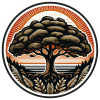

- 23 Resources
- 64 Discussions
- 31 Groups
- @alexrood
- | she/her
WILDLABS & World Wide Fund for Nature/ World Wildlife Fund (WWF)
I'm the WILDLABS Communications and Community Management Associate Specialist at WWF-US

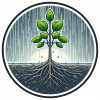



- 149 Resources
- 95 Discussions
- 6 Groups
No showcases have been added to this group yet.
- @matt_hron
- | He/Him
Wildlife Protection Solutions (WPS)
Product Manager at Wildlife Protection Solutions



- 0 Resources
- 8 Discussions
- 8 Groups
BSc Forest Engineering, MSc GIS Sciences, Drone researcher

- 2 Resources
- 11 Discussions
- 5 Groups
Apasionado por la vida en el campo y la electronica aplicada a proyectos de conservacion
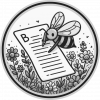


- 0 Resources
- 37 Discussions
- 3 Groups
- 0 Resources
- 0 Discussions
- 6 Groups
trying to understand and improve the welfare of all animals that can suffer


- 4 Resources
- 6 Discussions
- 7 Groups
- 0 Resources
- 0 Discussions
- 3 Groups
- @npeoples
- | she/her/hers
Undergraduate student at UNC-Chapel Hill studying environmental science and journalism



- 4 Resources
- 1 Discussions
- 2 Groups
- @amklovrza
- | she / her
Hello! My name is Anabelle Marques Klovrza and I am a Ph.D. student at Dawson's lab. I am studying community assembly of island-like environments, and in trying to connect it with the vulnerability and fragility of the ecosystem.
- 0 Resources
- 0 Discussions
- 8 Groups
I am an environmental enthusiast with great passion for conservation, preservation and protecting the environment and wildlife and the natural resources. With
- 0 Resources
- 0 Discussions
- 3 Groups
University of Salford
- 0 Resources
- 2 Discussions
- 6 Groups
- @HollyCormack
- | she/her
Biodiversity Knowledge Management Intern at the Biodiversity Consultancy Ltd



- 6 Resources
- 5 Discussions
- 6 Groups
- @ryanhuang
- | He/Him/His
Conservation scientist based in Pretoria, South Africa
- 0 Resources
- 0 Discussions
- 6 Groups
Read about the advice provided by AI specialists in AI Conservation Office Hours 2025 earlier this year and reflect on how this helped projects so far.
6 August 2025
If you're a Post-Doctoral Fellow, a PhD student, or a member of the research staff interested in applying your computational skills to support active research publications, please read on to learn about the Cross-...
5 August 2025
"Ingenious is a public engagement grants scheme for projects that engage the public with engineers and engineering while providing engineers with training and opportunities in public engagement."
21 July 2025
Lead a growing non-profit to sustain open source solutions for open science!
19 July 2025
From 2023 to 2024, WILDLABS has grown substantially, launching impactful new platform features, delivering critical funding opportunities, and connecting the community in new and exciting ways. Read more about the...
17 July 2025
Funding
Are you a young (between 18 to 35 years old) and dedicated nature conservationist committed to protecting wild species? Do you combine passion with action to create concrete results in nature conservation? Are you the...
10 July 2025
The Big if True Science Accelerator (BiTS) to supports scientists, engineers, and entrepreneurs in transforming bold concepts into actionable program designs.
8 July 2025
Are you interested in applying for The Boring Fund 2025? On this page you can find more information for this opportunity which provides up to $12,500 per project in funding for essential but overlooked aspects of...
2 July 2025
The Boring Fund supports the essential but overlooked aspects of conservation technology. In response to overwhelming demand in 2024, we’ve partnered again with Arm to provide more funding. In 2025, a total of $80,000...
2 July 2025
Careers
If you have a background in any of the following areas: bumblebee research, entomology, ecology, practical application of evidence for conservation, policy advocacy, data management and/or conservation-related education...
26 June 2025
Your role will be to deliver the Shrill Carder Bee Conservation Strategy 2020-2030 in England and Wales. This includes developing landscape-scale conservation projects for the Shrill carder bumblebee primarily in South...
26 June 2025
This is a chance to participate in a short survey about the preferences that conservation practitioners have for evidence. There's a chance to win one of three £20 Mastercard gift cards.
24 June 2025
October 2025
event
event
event
November 2025
February 2026
April 2026
event
May 2023
event
April 2023
event
| Description | Activity | Replies | Groups | Updated |
|---|---|---|---|---|
| India’s unique biodiversity faces specific conservation challenges, necessitating the development of innovative, technology-driven... |
|
Community Base, Funding and Finance | 1 year 1 month ago | |
| Thank you Frank for your comments! And no worries, any pointer to info might lead to something relevant, I will google it through ;-) cheersYanna |
|
Community Base | 1 year 1 month ago | |
|
|
Community Base, Early Career, East Africa Community | 1 year 2 months ago | ||
| Hey @antoineede ,I am not sure about that yet video recordings are available or not but you can visit this: SMART Global Congress 2024 | BluePrismMay be here you will get some of... |
+9
|
Protected Area Management Tools, Community Base | 1 year 2 months ago | |
| Fantastic!! |
|
Acoustics, AI for Conservation, Animal Movement, Build Your Own Data Logger Community, Community Base, Early Career, Ethics of Conservation Tech, Marine Conservation, Open Source Solutions | 1 year 2 months ago | |
| Hi @Frank_van_der_Most thanks for flagging that old/broken link. I have updated it to send to this thread here - https://wildlabs.net/discussion/new-platform-help-troubleshooting-... |
|
Community Base | 1 year 2 months ago | |
| We'll be presenting Wednesday morning as part of session 10.1b on "Integrating earth observations and biological tools in ecology and evolution to cogenerate knowledge towards... |
|
Community Base, Animal Movement | 1 year 2 months ago | |
| I noticed the site being annoyingly slow some time last week. Thank you for clearing that up, for finding the cause and solving the issue.I'm not claiming deep knowledge on AI,... |
|
Community Base | 1 year 3 months ago | |
| Hello Ms Esther👋Thank you for taking your time to reply to me with such helpful response.I'm interested in conservation technology such as camera traps, GIS and Remote sensing,... |
|
Early Career, East Africa Community, Community Base | 1 year 3 months ago | |
| Totally agree.Inititally sceptical until I saw Helena and Graeme were involved.MJ |
|
Acoustics, Citizen Science, Community Base, Human-Wildlife Coexistence | 1 year 3 months ago | |
| Hi Kevin and Kim, Apologies for the delayed response; however, we were unable to provide specific information until today. We aim to reach out to each applicant in the... |
+38
|
Community Base | 1 year 5 months ago | |
| Hi Danilo. you seem very passionate about this initiative which is a good start.It is an interesting coincidence that I am starting another project for the coral reefs in the... |
|
Acoustics, AI for Conservation, Animal Movement, Camera Traps, Citizen Science, Climate Change, Community Base, Connectivity, Drones, Emerging Tech, Human-Wildlife Coexistence, Open Source Solutions, Sensors, Software Development, Wildlife Crime, Funding and Finance | 1 year 6 months ago |
Social Tech Seed: Applications now open
23 March 2016 3:59pm
What do you do in your spare time?
2 March 2016 11:04am
Indianapolis Prize Finalists announced
9 February 2016 4:31pm
New Groups - what's in development and what would you like?
14 January 2016 3:02pm
New article about WILDLABS.NET: Where Technology and Conservation Meet
24 December 2015 4:33pm
Second Tiger Cub Dies in Crimea Zoo After Blackout
7 December 2015 10:31pm
8 December 2015 12:42pm
Hi, Stephanie
"WILDLABS.NET is a community of conservationists, technologists, engineers, data scientists, entrepreneurs and change makers. Together, we share information, ideas, tools and resources to discover and implement technology-enabled solutions to some of the biggest conservation challenges facing our planet. Join the Community to share your knowledge, explore ongoing projects, ask questions and identify major questions and needs. This community is a centralised space for field based conservationists to connect directly with technology experts, to share their challenges and source new ideas for solutions. Connecting with users on the ground will help technologists and innovators to test ideas in field environments, and adapt systems that can accelerate conservation gains. The problems faced by our planet cannot be solved by people working in silos. Become part of theCommunity and work together to build the solutions." (from WILDLABS.NET front page)
Bengal tigers (especially white ones) are identified as endangered species. Blackouts can happen anywhere.. So, as this is a community based on technological solutions, discussions, and sharing ideas and collaborating, I believed someone could have an idea about what can we, as conservationists, do, in order to prevent such loses of endangered species in the zoos, in the future. I'm less interested in politics when it concerns the lives of innocent animals suffering from imperfect conditions in the zoos etc. Any loss of endangered species, anywhere in the world, is a wildlife crime, because we can not afford to let our children live in the world where there's no elephants, rhinos or bengal tigers etc.
On the contrary, this is exactly what I've been saying, that technological innovations (ideas, projects) are exactly what could we all seriously regard in order to solve such problem that happened to the animals in the Crimean zoo. For example, zoos areas could have better equipment with alternative energy generators, or some innovative energy generators. In case of a blackout for example (man-made, natural, technological), in some country for example, it immediately puts at risk the zoos |and the safety and security of its animals|(and not only, but here we discuss environmental issues), for example if it's a cold country: Finland, Russia, Ukraine, Canada etc, on my opinion, I think it would be better if the zoos be equipped with alternative power generators. So, if anyone in the community, have an idea what kind of innovations could be used for the zoos (all over the world) I would be happy to read.
Thank you,
With love,
Sofia
France24.com video segment on wildlife conservation technology
4 December 2015 7:51pm
7 December 2015 11:55am
Thanks for posting Dave - it's a neat overview of lots of different projects. I hadn't seen the SMART hook before, so worth the watch!
Bengal tiger cub dies of cold at Crimea zoo hit by power cuts.
4 December 2015 6:22pm
Bengal tiger cub dies of cold at Crimea zoo hit by power cuts.
4 December 2015 5:36pm
Rare friendship between a tiger and a goat!
4 December 2015 5:29pm
wildtech.mongabay.com is a great resource
2 December 2015 10:40pm
3 December 2015 2:19pm
Thanks for the link - yes, I agree Mongabay's WildTech areas is a great resource for anyone interested in keeping up to date with the latest conservation tech news. Sue Palminteri's article is facinating and is definitely worth a read. The video showing the daily movement of elephants is particularly interesting (see the screenshot below) - it was a case study Katherine Chou of Google.org spoke about in her Fuller Symposium address as well. That they're getting close to real time monitoring is very exciting - it would have been amazing to have that capacity in other projects I've been involved with.
The key take-aways you highlight match a lot of what came up in the Fuller Symposium and other discussions about HWC. The consensus from Wired in the Wild - Can technology save the planet? was that no, it cannot. It is simply a very useful tool that, when used appropriately, could have significant impacts in the challenges conservation is attempting to tackle. Numerous speakers drove home the point that technology is not and should not be the starting point; we need to be technology agnostic. We must start by understanding the challenge and then looking at what (if any) technology might help to address it given the circumstances.
The Elephants and Bees approach is a great example of why we need to start with challenge rather than the technology. Sometimes the best solution is the low tech approach. Nilanga Jayasinghe highlighed this in her thought piece about HWC - giving a similar example of work WWF is doing in Nepal:
'During a recent visit to Nepal, I visited rural villages where wild elephants often raid rice fields during harvest season. The communities had installed electric fences but this tool didn't always succeed on its own. Elephants are smart and persistent: they had learned to break the fence’s electric current, and then the fence itself, by using trees to push over the supporting stakes. To solve this problem, we worked with farmers to dig fish ponds in front of the fences as an additional obstacle. Adding an additional barrier not only made it harder for the elephants to get into the fields, it also gave the communities more time to respond and drive elephants away. This simple solution has not only reduced elephant raids, but has also improved local livelihoods from the sale of the fish grown in the ponds.'

Frequently Asked Questions
30 October 2015 5:43pm

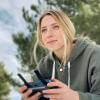










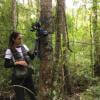






















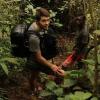


















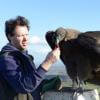
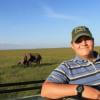

8 December 2015 12:11pm
Hi Sofia,
While there is a argument that the death of Bengal Tigers at a zoo in Crimea could potentially be viewed wildlife crime, your original post was unclear about how this was relevant to a professional community that is focused on collaborating and sharing ideas about conservation technology. I would argue that technological innovation might not be the most important element for finding a solution to the problem you have identified. Rather, there are political, social and economic factors that must be addressed as a higher priority, and if addressed effectively, will negate the need for a complex technological solution to this issue.
That being said, I welcome any community member who might be interested to continue the discussion below.
Cheers,
Stephanie